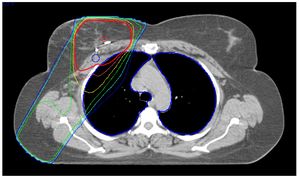The recent offensive by M23 rebels has led to serious humanitarian consequences as they captured Goma, the largest city in eastern Democratic Republic of Congo, on January 30, 2025. This strategic city, which serves as the capital of North Kivu province and is rich in mineral resources, remains at the center of one of Africa's longest-standing conflicts.
Violence erupted this week when the rebel group M23, linked to Rwanda, launched significant attacks against the Congolese army, resulting in thousands of casualties and displacement of civilians. Reports estimate more than 773 bodies filling morgues and streets, with 2,880 individuals wounded by January 30. The situation has become increasingly dire as Goma's hospitals report being overwhelmed by the sheer number of injured, with many suffering from insufficient care.
Local civil society leader Justin Mulindangabo stated, "Congo's army has taken back the villages of Mukwija, Shanje, Numbi, and Nyamasasa, but fierce battles continue." There are fears of the conflict spilling over to other regions, particularly as M23 has indicated intentions to march toward Kinshasa, the capital of the DRC, situated nearly 1,000 miles from Goma.
The humanitarian impact is staggering. Both Oxfam and the U.N. have raised alarms over the crisis, reporting nearly 4 million internally displaced people, many seeking safety within Goma's crowded areas and facing severe shortages of food, water, and medical supplies.
Aid worker Faith described the scene starkly: "Bodies are all over the city and many are decaying in the streets. Children are dying by the hour. Hospitals are full and those in hospital have no food, no water, and no medication. Medical staff are overwhelmed." With the internet cut off, individuals have limited means to gather and share information, exacerbated by violence associated with the conflict.
While the M23 has claimed its goal is to bring about political change rather than gain control of lucrative mineral resources, their actions suggest otherwise. Corneille Nangaa, one of the political leaders of M23, commented, "Our objective is Congo, we are fighting for Congo. We are not fighting for minerals, we are not fighting for anything else." Many analysts, though, point to the strategic interest of controlling areas rich with gold, coltan, and other valuable minerals.
This resurgence of M23 can be traced back to the aftermath of the Rwandan genocide, highlighting the complex ethnic divisions and violent history of the region. The intensity of the conflict has led to significant governmental and military responses, yet the DRC's army has struggled against M23's well-organized forces, which reportedly have approximately 6,500 fighters.
The international community has condemned the actions of M23 and raised concerns over alleged violations by both sides, including reports of sexual violence used as a weapon of war. The U.N.'s human rights chief has noted the increase of such incidents, stating, "Conflict-related sexual violence has been an appalling feature of armed conflict in eastern DRC for decades." Recent reports indicate over 200 cases of sexual violence since the escalation began.
Despite recognition of the humanitarian crisis, the international response has been tepid. While condemnation of Rwanda's support for the M23 has surfaced, actual pressure on the Rwandan government has been minimal compared to previous instances of conflict. There are indications of Rwanda's military involvement, with estimates of 4,000 Rwandan forces operating within Congo's borders.
The health ministry has reported dire conditions, confirming 773 bodies have been accounted for, with many more lying on the streets. Refugee camps are overflowing, and many individuals have fled fighting only to find themselves trapped again as conflict pushes closer.
Bernard Balibuno, DRC Representative for Cafod, expressed concern: "All the feeder roads are cut off. There is mass chaos. It’s catastrophic. There is no electricity in the city, no water." Reports also mention numerous civilians risking their lives to welcome soldiers as they march through Goma, out of desperation to avoid being targeted.
While every day brings new challenges, aid organizations face overwhelming difficulties delivering services, and many have scaled back activities. The World Health Organization and other humanitarian bodies have sounded alarms over the incidence of violence impacting both healthcare workers and civilians alike, illustrating the exacerbation of what was already a dire situation.
The dire humanitarian crisis reflects not only the immediate struggles faced by the people of Goma but also raises questions about the stability of the region and the geopolitical ramifications to come. With the international community watching, diplomats and leaders must step forward to take decisive action to protect civilians and stabilize eastern Congo's fragile security.



